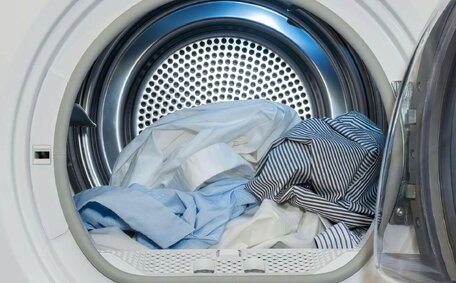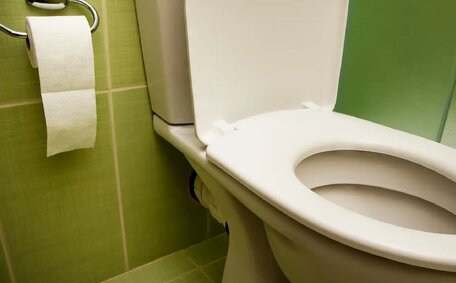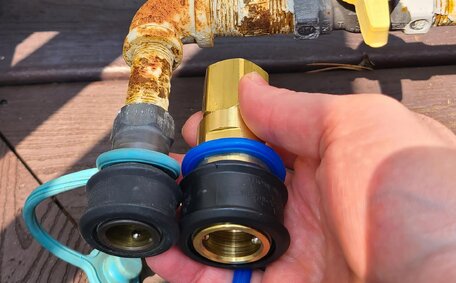Introduction to hot water systems
Reliable hot water systems are essential for homes and businesses in Ryde, Sydney. Hot water is essential for tasks like washing, cleaning, cooking, and ensuring general comfort and hygiene. At Ryde Plumbing, we understand how vital it is to have an efficient and properly functioning hot water system.
Several types of hot water systems are available, each with specific advantages and ideal use cases, including gas, electric, solar, heat pump, and tankless varieties. Solar hot water relies on solar panels and sunlight to heat water and can lower environmental impact. Heat pumps, for instance, harness ambient air, coupling it with an electric element for energy-efficient water heating. Tankless water systems provide instantaneous hot water on demand, offering convenience without the need for storing water.
Gas water heaters use a burner to warm water and usually have lower operating costs, while electric systems depend on electric elements.
For any problems with your hot water system, the licensed professionals at Ryde Plumbing have the skills to diagnose and fix them.
We also manage installations of your hot water heater and assist in choosing the ideal type for your unique requirements. Contact us today to learn more about optimising and maintaining your house or business’s hot water system.
How hot water systems work
Tankless water heaters work by instantly heating cold water from the main water supply as it flows in on request. The key components can also include a heat source, storage container (for tank systems), heat exchanger which facilitates heat transfer, and an electronic control unit.
In a storage hot system, cold water flows into a storage tank where it’s heated by gas burners, electric heating elements, solar panels, heat pumps, etc. The water, heated to an appropriately high temperature, is stored until required, ready to supply hot water through the lines directly to your taps.
A tankless (instantaneous hot) system quickly heats water as it flows, ensuring immediate access to warm water. When hot water is demanded, activating the tap, a gas burner or heating element swiftly brings cold water to the desired temperature, propelling it through to the tap. Tankless models offer the convenience of instant hot water when hot water tap is activated, with a continuous flow, negating the requirement for water storage.
The performance of a hot water system hinges on the energy source, capacity, recovery rate, insulation, and accommodation for water demand. The advantages and disadvantages of various types are further detailed below.
Basic functionality
The basic functionality of a hot water system can be summarised as efficiently heating cold water from the main supply and delivering it as hot water through the plumbing lines. This is achieved via a heat source, heat exchanger, and temperature controls.
Cold water enters the system and travels to the heat exchanger, which transfers heat energy to the water using gas burners, electric heating elements, etc. This method is characteristic of storage water tank types, which swiftly raise the temperature to your pre-set preferences.
With a tank-based heater, water storage is straightforward; the newly heated water flows through hot water lines into an insulated container until it’s called into use. In a tankless model, the heated water immediately flows through hot pipelines and exits the system when a hot tap is opened. The heat exchanger activates only on demand for unlimited hot water supply.
Temperatures are adjustable, typically from 50-75°C. We can help advise on ideal temperature settings.
The optimal temperature setting depends on your specific hot water usage needs.
Key components
The key components that make up a typical residential hot water system in Ryde include:
- The storage tank is an insulated container that stores heated water. It’s where the initial heating occurs. Storage systems range from 50-400+ litres based on water demand.
- The heat source fuels the heating, such as gas or electric burners, solar panels, heat pumps, etc. It rapidly transfers heat into the cold water.
- The control unit regulates water temperature, heating times, safety functions, etc. through electronic controls and sensors.
- An expansion tank ensures the water heater works efficiently, controlling pressure fluctuations during heating and cooling cycles. This prevents pipes from bursting.
Components such as pressure relief valves, anodes for corrosion resistance, and insulation also contribute to system functionality and energy efficiency. Understanding each component’s role is crucial for optimal performance through accurate installation and upkeep.
The experts at Ryde Plumbing have extensive experience with the most common residential hot water systems and components. We’re happy to assess your current setup and provide advice to keep your hot water running reliably for your home/business needs.
Different types of hot water systems
There are several common types of residential hot water systems available in Ryde:
- Gas storage - Relies on a gas burner/flame to heat water stored in an insulated tank. Lower operating costs but higher purchase price.
- Electric storage hot water systems use heating elements to heat water quickly, ensuring a reliable supply and often consuming less energy than traditional gas systems.
- Solar - Heat pump water heaters harness ambient air to heat water in a roof-mounted insulated tank, mainly during daylight hours. Highly efficient but requires adequate sun exposure.
- Storage hot water system with heat pump - Extracts ambient heat from air to heat stored tank water. Very energy efficient but higher upfront cost.
- Instant hot water system - Tankless designs provide immediate heating with gas burners or electrical elements during active water flow. Provides unlimited on demand hot water but often higher purchase price.
Hybrid systems can integrate a heat pump with solar pv system or gas support, enhancing both efficiency and dependability.
The licenced experts at Ryde Plumbing are familiar with all the popular hot water systems readily available in the Ryde region. We help homeowners and businesses determine the most suitable type for their budget, usage needs and goals around efficiency.
Gas systems
You might wonder how gas hot water systems work. Gas hot water systems use natural gas or LPG to efficiently heat water. A gas burner or flame heats a storage tank or flows through a heat exchanger in an instantaneous unit. Key benefits of gas systems include:
- Lower operating costs compared to electric hot water systems
- Tankless models provide a higher hot water flow rate, around 19-25 litres per minute
- Gas storage tanks heat water faster than electric with better recovery time
- Higher initial purchase cost but pay off over time
Installing a gas hot water heater requires adequate gas lines, ventilation, servicing clearance space, and flueing. In Ryde, we install seismic restraints as a precaution against earthquakes. Essential safety features also include a pilot light, flame failure device, pressure relief valve, thermal cut out switch, and tempering valve.
The team at Ryde Plumbing specialises in every aspect of residential and commercial gas hot water systems. We handle new installations, replacements, repairs, maintenance, and advise on the best tankless water heater solutions to suit your hot water usage needs.
Electric systems
Electric hot water systems use heating elements to ensure water stored in an insulated tank is efficiently heated, serving as an integral part of your home’s plumbing setup. Compared to gas systems, electric water heaters are typically more energy efficient with lower long-term operating costs. However, they may have longer recovery times and lower flow rates.
Electric water heater units come in a range of sizes to suit how much hot water different household and commercial demands require:
- Small units around 50-80 litres for apartment, granny flats etc.
- Medium 100-250 litre suitable for a varying number of people, typically 2-4
- Large 270+ litres for bigger households
Benefits of electric hot water systems include:
- Exceptional energy efficiency, particularly with heat pump models
- Reduced greenhouse gas emissions
- Simple to install and service
- Relatively low purchase and install cost
Our team at Ryde Plumbing specialises in electric hot water systems. We do electric systems handling new installations, repairs, replacements, maintenance, and provide advice on running costs and efficiency. Contact us to determine if an electric system is right for your home or business needs.
Solar and heat pump systems
Solar and heat pump hot water systems offer high energy efficiency by harnessing renewable sources. Solar water heating uses roof-mounted solar collectors and sunlight to heat water. Heating water efficiently, heat pumps tap into the ambient air, sustaining your storage tank’s temperature.
\
Solar and heat pump systems offer key benefits:
\
\ - Significantly reduced running costs and energy consumption
\ - Solar systems incur minimal operating costs, performing optimally in sunny Ryde
\ - Significantly lower greenhouse emissions
\ - Eligible for government rebates as renewable options
\ - Ensure a dependable hot water supply
\
\
Solar and heat pump systems require a higher initial investment but offer substantial energy bill savings over time. They can cut a household\'s hot water-related energy use by 60% or more.
\
As a sustainable and eco-friendly plumbing provider, we\'re huge advocates of solar and heat pump hot water systems for Ryde homes and businesses serious about energy efficiency.
Maintenance and efficiency tips
Performing regular maintenance on your hot water system is crucial for optimising its lifespan, performance, and energy efficiency. This enables you to save money while avoiding unexpected breakdowns or expensive repairs.
Annual inspections and servicing every three to five years are advised for hot water units. Checks should cover:
- Water temperature and pressure
- Gas connections and combustion efficiency
- Condition of electric heating elements
- Insulation integrity
- Pipe condition
- Safety valves operation
Efficiency can be improved with DIY measures such as:
- Insulate your hot water tank with a heater blanket for better efficiency
- Insulating hot water pipes helps preserve water temperature and pressure
- Set the thermostat to around 60°C
- Fix any leaky taps
- Use a timer to control heating periods and save energy
Properly installing and maintaining your water heater is crucial for safety and energy efficiency. The licenced experts at Ryde Plumbing can handle all hot water servicing and repairs to provide ongoing reliability and cost savings.
When to upgrade your hot water system
There are a few key signs indicating your hot water system in Ryde needs upgrading:
- Frequent breakdowns - If frequent repairs are needed to maintain enough hot water, your ageing unit likely needs replacing.
- Upgrading to a higher capacity tank or a tankless system might be necessary if you consistently run out of hot water due to low flow rates or slow recovery times.
- High energy bills could signal an inefficient hot water system; switching to a newer, efficient model can lead to savings.
- Technology improvements - Modern hot water systems surpass those from over five years ago, with improved energy ratings, flow rates, and smart controls.
Contact Ryde Plumbing for a professional assessment if you’re considering upgrading your hot water unit. We can assess your current system, advise whether newer technology could save on bills, and handle professional installation of replacement units.
With extensive expertise servicing homes and businesses across Ryde, we help determine optimal hot water solutions to match usage needs, budgets and efficiency goals. Get in touch today for upgrading consultations.






